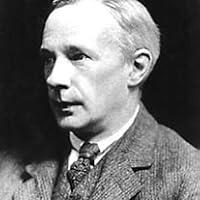
George Edward Moore
关于作者
George Edward Moore was a prominent British philosopher, best known for his work in ethics and epistemology. He played a crucial role in the development of analytic philosophy, providing significant contributions that shaped the course of modern philosophical thought. Moore's most influential ideas include the concept of the 'naturalistic fallacy' and the defense of common sense realism, which challenged the prevailing idealist philosophies of his time. His landmark work, "Principia Ethica," established him as a leading figure in moral philosophy, arguing that goodness is a non-natural property and cannot be reduced to naturalistic terms.
Throughout his career, Moore maintained a commitment to clarity and rigor in philosophical argumentation. His engagement with various philosophical issues extended to discussions on the nature of truth, belief, and perception. He influenced a generation of philosophers, including those in the Vienna Circle and later figures in the analytic tradition. Moore's legacy continues to resonate in contemporary philosophical discourse, making him a central figure in the study of ethics and epistemology.